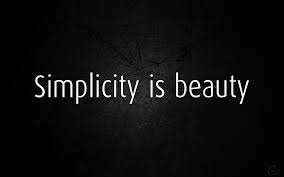Ethics and Simplicity
 Groucho Marx was (and is) my hero. No one else had a sharper wit. One of my favorite scenes was in Duck Soup when Groucho conducts a meeting as the President of Fredonia. Here is the clip.
Groucho Marx was (and is) my hero. No one else had a sharper wit. One of my favorite scenes was in Duck Soup when Groucho conducts a meeting as the President of Fredonia. Here is the clip.
In particular, when Groucho is given a report and looks through it and says, “Why, even a four-year-old child could understand this report.” He then flips the report to his brother Zeppo, and quips, “Run out and find me a four-year-old child; I can’t make head or tail of it.”
People confuse complexity with intelligence. Nothing could be further from the truth. The beauty in life is simplicity – making ideas accessible to everyone, so that everyone can understand and follow the thought.
When it comes to ethics and compliance, this principle applies with equal force. Too often, I see articles with titles like “promoting value-drive behaviors,” or “organizational concepts to establish values and principles,” blah blah blah.
There are two important principles that have to be followed – a code of conduct has to be short, sweet, and simple. The ideas have to be expressed in clear language. If the company adopts values, the values have to be no more than five and with clear terms.
Internal communications have to be concise and accessible. It is one thing to communicate to everyone the company’s values; it is quite another thing to demonstrate how those values are applied in the real world; and it even another thing to make sure that leaders act in accordance with those principles.
Corporate leaders have an image, a reputation and an audience that needs to know that the leaders are acting and conducting themselves in accordance with corporate principles.
The research about ethical cultures has shown that training and certifications to a code of conduct, along with reminders and communications about the importance of ethics, are important to establish and maintain a culture of ethics. However, the missing ingredient – and perhaps the most significant ingredient – is the actions of a leader consistent with the ethical culture, which in turn, becomes symbolic and ultimately akin to “folklore” about the leader’s commitment to an ethical culture.
We see this same principle in action every day with our own leaders. We may admire a leader who engages in a symbolic act that confirms the leader’s values, principles, and commitment to positive, ethical choices.
Corporate leaders who somehow believe that their actions are not observed, reported, and judged are seriously missing the point. They do not belong in a leadership role – a leader has to lead and has to understand the power behind their words, actions, and behaviors.
 Managers and employees want to believe in their leaders and, of course, the organization. They need to believe that their work, contribution, and accomplishments are positive and improve not only the life of the company but the overall public interest. It is human nature, and true leaders–whether consciously or unconsciously–understand their role in harnessing and promoting this energy.
Managers and employees want to believe in their leaders and, of course, the organization. They need to believe that their work, contribution, and accomplishments are positive and improve not only the life of the company but the overall public interest. It is human nature, and true leaders–whether consciously or unconsciously–understand their role in harnessing and promoting this energy.
A corporate leader who is a technocrat is doomed to fail. On the other hand, a corporate leader who understands all of the technical concepts (not just the ones understood by the four year old) and can tap into the emotional needs and drives of managers and employees will inevitably succeed in creating a culture of ethics and a culture of productivity.














